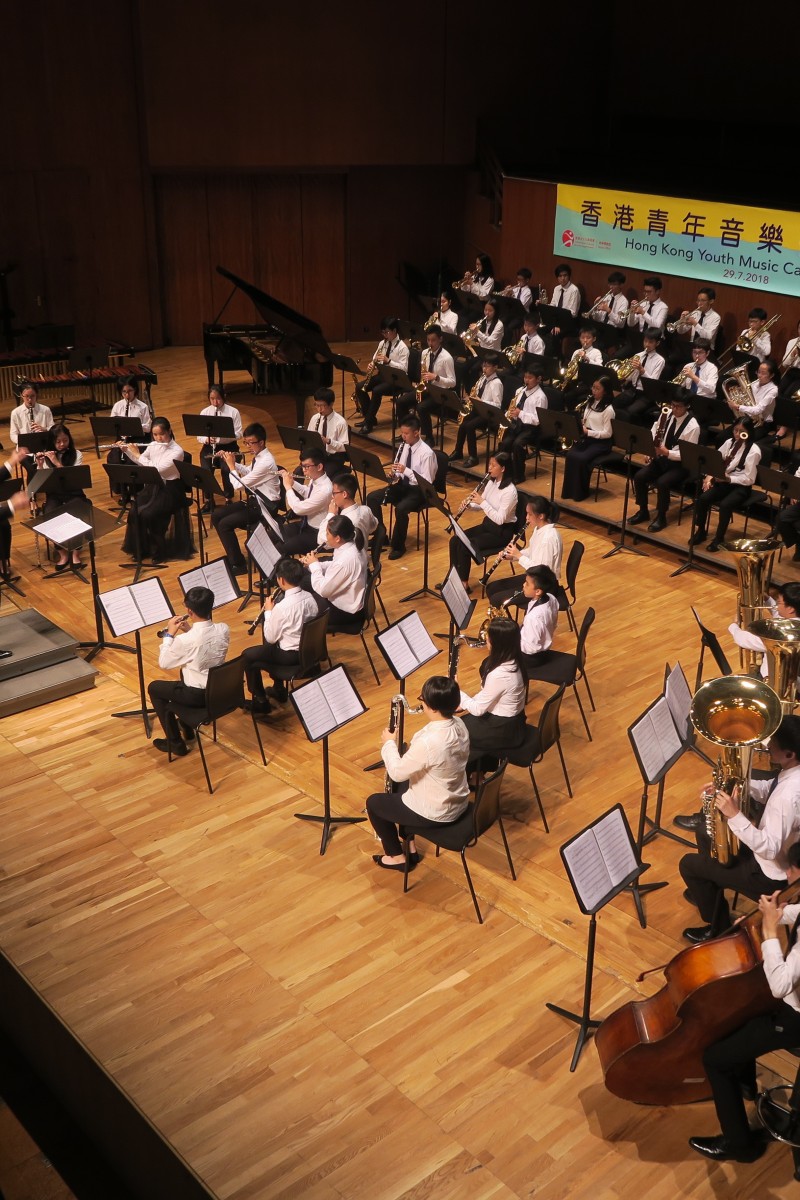
How playing in an orchestra improves your musicianship, endurance, and social life
It takes more teamwork than talent to make an orchestra truly spectacular
 The 2018 Hong Kong Youth Music Camp held a concert at the end of July.
The 2018 Hong Kong Youth Music Camp held a concert at the end of July.While any orchestra requires talented individuals, a truly amazing one must be greater than the sum of its parts. At the 2018 Hong Kong Youth Music Camp, which took place last month, young musicians learned what it takes to make music as part of an ensemble.
The camp consisted of seven days of intense training and practice, ending in a concert at City Hall in Central where the students showed off the fruits of their labour to an admiring audience.
Tse Chung-yuen, assistant music officer at the Music Office of the Leisure and Cultural Services Department, which has been running the camp since 1980, says being immersed in a musical environment allows students to make big strides in a short amount of time.
DBS orchestra learns better skills and how to be confident whilst winning an award abroad
“The camp puts very different demands on students than normal [music classes would] as the classes are very concentrated,” he said. “It’s good for their growth.”
Bass clarinet player Phoebe Li Ka-wai, from Assembly Of God Hebron Secondary School, said she really enjoyed being taken out of her comfort zone.
“You need to be able to adapt. It improves you all round,” said the 16-year-old. “Making new friends outside school and from other countries exposes you to different techniques [of playing music]. I learned new things and realised the mistakes I had been making.”
The boys of the La Salle Chinese orchestra compete together and cry together
The camp was a test of both physical and mental endurance, with students practising every morning and afternoon.
As for the instructors, they said that familiarising the students with the music in just seven days was no easy task. “Normally, you might practise for two shows in a year,” said teacher Chan King-tsun. “One week isn’t much time. It was very hard.”
Chiu Lut Sau Memorial Secondary School student Katie Tang Hoi-ching plays the dizi, or Chinese flute. Katie said that the camp had taught her more about the role her instrument plays as part of a large-scale production.
“It was very special; normally you don’t get to hear so many other instruments [while you practise],” the 14-year-old Chiu Lut Sau Memorial Secondary School student explained. “It took a lot of effort, but we were all very motivated [to do well].”
While the first few days of the camp focused on improving technique and creating synergy within the group, the final few days were dedicated to something more abstract: making music to touch the soul.
Hong Kong Philharmonic teaches young musicians to play well with others
As instructor Joseph Kam Ho-pang – who himself took part in the programme as a teenager – says, music isn’t just about pitch and rhythm, but sensation and emotion.
“In music, each composer has their own style and taste,” he said. “Using technique to express feeling is a process of listening, observation and presentation.”
When asked how much she felt like she had improved, Katie said she felt like she had gone “from 40 or 50 per cent to 80 or 90 per cent”.
Even experienced young musicians like 15-year-old Diocesan Girls’ School student Ivy Kan Chui-hei, who plays the violin, flute, and piano and sings opera, found they took something away from the course.
“It was hard work, but you could feel the magic,” she said. “Our group had chemistry.”
